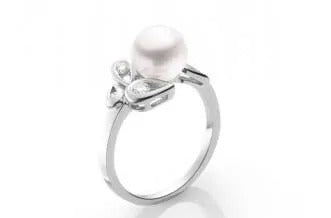Tourmaline

Tourmaline boasts more colors than any other natural gem. Your choices range a deep blue to a sizzling red with graceful green in between, perhaps the reason the stone has always been known for enhancing artistic intuition. Treatments include heat and irradiation to boost their colors and resins used to fill fissures.
Emerald

Glorious green is the hallmark of the emerald, a stone that’s long symbolized regeneration, rebirth and a powerful life force. Hailed as nearly as precious as the diamond, these stones require regular oiling to keep them gleaming. Treatment methods include filling fissures with hardeners mixed with resin, oils or waxes.
Amethyst

This passionate purple stone has historically been the choice of royalty, favored by notables that range from ancient Egyptian pharaohs to Catherine the Great. Great thinkers believed this form of quartz had the power to enhance intelligence while banishing evil thoughts. No treatment methods are required for darker versions of the gem.
Sapphire

Loyalty, trust and brilliant shades of blue are typically associated with sapphire, although the gem also comes in rich gold, blazing orangey-red, soft violet and even a pale glowing white. It was once believed the earth actually perched on a massive sapphire that lit up the sky. Heat treatments improve clarity and color.
Citrine

Shimmering shades of yellow are the claim to fame of the citrine, a gemstone thought to protect against snake venom and vile thoughts. Named after the French word for lemon, this form of quartz is treated with heat to achieve the bright orange-yellow colors.
Aquamarine

Mermaids were thought to keep a treasure trove of aquamarines, a sea-blue gem thought to keep sailors protected at sea. With colors that range from a pure blue to greenish hues, the gemstone is known for producing a soothing influence in couples. Heat treatments bring out the blue tones.
Ruby

Courage, power and an eternal internal fire are marks of the ruby, a fiery red stone adored for thousands of years. A sign of good fortune and passion, rubies may be treated with heat or diffusion to enhance color and a silicate byproduct to fix small fissures.
Yellow Diamond

With hues that range from intense yellow to a darker brownish-yellow, the fancy yellow diamond holds the same mystique as its ever-popular colorless cousin. Diamonds were thought to be tears of the gods or splinters from the stars; they brought protection in battle and a deeper bond between couples. Treatments can include high-heat and high-pressure, irradiation, laser or surface coating to enhance color and molten glass to repair fissures.
Pearl

Pearls were created by the moon, according to Chinese legend, but man has since learned to culture them by planting an irritant into oysters and other mollusks. With shades that range from white to black, pearls have long held an air of supreme mystery and value. Treatment methods include bleaching for color and tumbler polishing to improve luster.
Morganite

Distinctly pink and ladylike, Morganite was named in honor of gem collector and financier J.P. Morgan. A form of beryl, this gemstone is quite rare, durable and graced with a feminine flair. Heat treatments enhance the pinkish hues, which can have peachy to purple overtones.
With nearly all the colors of the rainbow literally at your fingertips, the door’s wide open to create a truly unique engagement ring. Choose a gemstone based on your favorite color, your birthstone, a "something blue" for good luck on your wedding day, or any other trait that draws you to a special option that dares to step out of the bounds of tradition.




